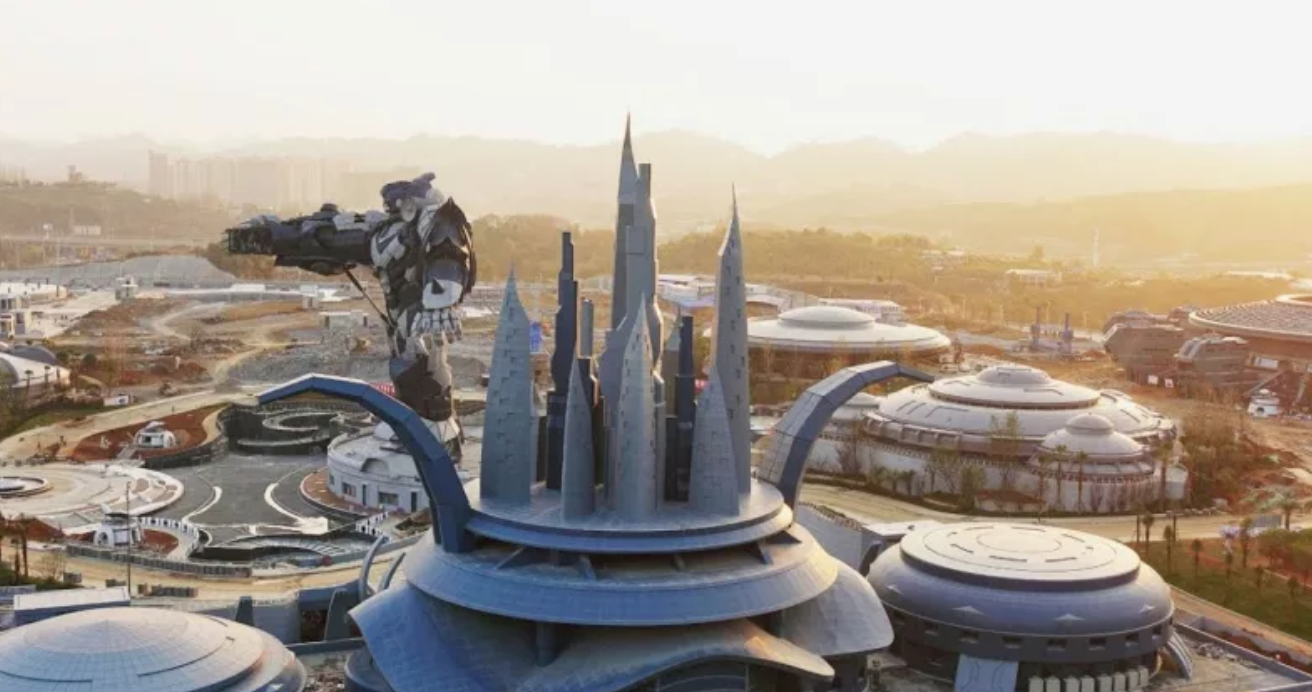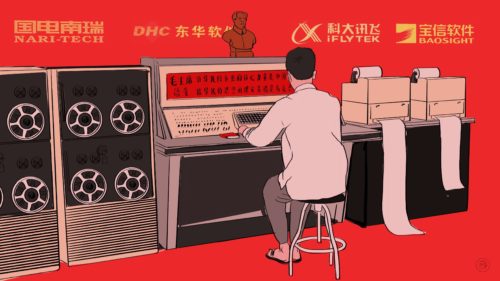Big data and science fiction valleys in Guizhou


China’s first virtual reality (VR) theme park opened near Guiyang, the provincial capital of Guizhou. The park features 35 virtual attractions — instead of getting on a roller coaster, you don VR goggles — but there is a spectacular physical construction, too: a 53-meter-tall, 700-ton statue of a robot. You can watch a CGTN video report on Oriental Science Fiction Valley, or read these reports on the park from Reuters and Kotaku.
Guizhou, one of China’s poorest provinces, is perhaps most famous for Lao Ganma 老干妈 spicy sauce and Maotai, the sorghum-based spirit that lubricated Richard Nixon’s visit to China in 1972. But the VR theme park is just the most recent manifestation of an initiative to drastically change Guizhou’s economy and image, with support from the very top:
- Last year, General Secretary Xi Jinping attended the 19th Party Congress as a delegate from Guizhou, perhaps a gesture of his commitment to eliminate poverty. Making the province a destination for big tech is likely a major part of the local poverty-alleviation strategy.
- “Big Data Valley” (大数据谷 dàshùjù gǔ) is a catchphrase the Guizhou government began using last year to promote the inland province to tech companies, a step up from its more modest “Data Valley” (数据谷 shùjù gǔ), which was used in 2016 (in Chinese).
- Apple has built a massive data center in Guizhou. The project was announced in July last year, when the company said it would migrate all its Chinese users’ information and storage space to the new facility, to comply with Chinese law.
- Tencent is digging caves in mountainous parts of Guizhou to hold all of its servers, according to a statement by the company’s CEO, Pony Ma 马化腾, in March this year.
- 59 degrees Fahrenheit (15ºC): That’s the average temperature in Guizhou, according to this 2017 NPR radio report by Anthony Kuhn. The mild temperature makes it suitable for running server farms.






